Table of Contents
- Introduction
- Thyroid Function and LDL Cholesterol
- Effects of Thyroid Hormones on LDL Metabolism
- Health Implications
- Diagnosing Thyroid Disorders and Elevated LDL
- Treatment and Management
- Preventive Measures
Introduction
Welcome to our comprehensive guide on understanding the relationship between thyroid function and low density lipoprotein (LDL) cholesterol. In this article, we will explore how thyroid hormones influence LDL metabolism and their implications for overall health.
Thyroid Function and LDL Cholesterol
Learn about the intricate connection between thyroid function and LDL cholesterol levels. Discover how the thyroid gland and its hormones affect the synthesis, breakdown, and clearance of LDL particles within the body.
The thyroid is a small, butterfly-shaped gland located in the neck that plays a crucial role in regulating various bodily functions. One of its important functions is to produce hormones that control the body's metabolism. These hormones, namely T3 (triiodothyronine) and T4 (thyroxine), influence the rate at which cells produce and use energy.
LDL (low-density lipoprotein) cholesterol is commonly referred to as the "bad" cholesterol as it can contribute to the formation of plaques in the arteries, leading to various cardiovascular diseases.
Research has shown that thyroid function can have a significant impact on LDL cholesterol levels. An underactive thyroid, a condition called hypothyroidism, can cause an increase in LDL cholesterol. This happens because hypothyroidism slows down the metabolism, resulting in reduced breakdown and clearance of LDL cholesterol from the bloodstream. Consequently, LDL cholesterol levels rise, increasing the risk of cardiovascular issues.
In contrast, an overactive thyroid, known as hyperthyroidism, may cause a decrease in LDL cholesterol levels. Hyperthyroidism accelerates the metabolism, which can enhance the breakdown and clearance of LDL cholesterol from the body. As a result, LDL cholesterol levels tend to be lower in individuals with hyperthyroidism.
Monitoring and maintaining optimal thyroid function are crucial for managing LDL cholesterol levels. Proper diagnosis and treatment of hypothyroidism or hyperthyroidism through medication or other interventions can help restore the balance and minimize the risk of cardiovascular complications associated with abnormal LDL cholesterol levels.
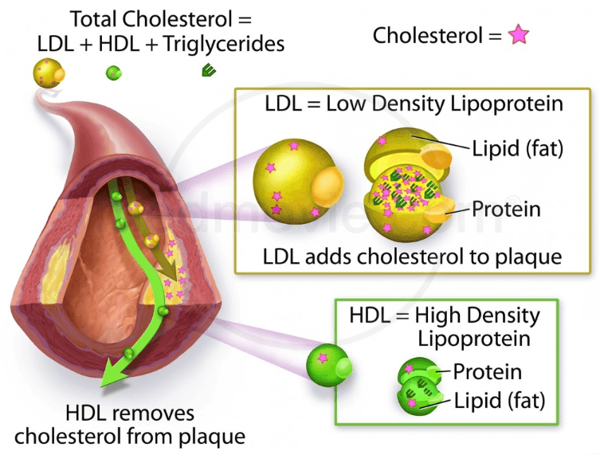
Effects of Thyroid Hormones on LDL Metabolism
Uncover the specific mechanisms through which thyroid hormones impact LDL metabolism. Understand how variations in thyroid hormone levels can result in altered LDL receptor activity, cholesterol synthesis, and cholesterol absorption.
Thyroid hormones play a crucial role in regulating various metabolic processes within the body, including the metabolism of low-density lipoprotein (LDL), commonly referred to as "bad cholesterol."
LDL is a type of cholesterol that can build up in the arteries, leading to the development of cardiovascular diseases. Thyroid hormones, such as triiodothyronine (T3) and thyroxine (T4), have been found to have both direct and indirect effects on LDL metabolism.
Direct Effects
Thyroid hormones directly affect the expression and activity of LDL receptors in the liver cells. These receptors are responsible for binding to LDL particles in the bloodstream and removing them from circulation. The increased presence of thyroid hormones upregulates the number of LDL receptors, thereby enhancing the uptake and clearance of LDL from the bloodstream. This process ultimately leads to a decrease in LDL levels.
Indirect Effects
Thyroid hormones indirectly affect LDL metabolism through their influence on various enzymes involved in cholesterol synthesis. They stimulate the activity of HMG-CoA reductase, an enzyme responsible for the production of cholesterol in the liver. This stimulation increases cholesterol synthesis, leading to reduced LDL receptor activity and decreased LDL clearance. Consequently, LDL levels in the bloodstream may increase.
Furthermore, thyroid hormones also influence the production of lipoprotein lipase (LPL), an enzyme involved in the breakdown of triglycerides (TG) present in circulating LDL particles. The increase in thyroid hormone levels enhances LPL activity, promoting the hydrolysis of TGs from LDL particles. This process results in the conversion of LDL particles to smaller, denser particles, which are more readily cleared from the bloodstream.
The effects of thyroid hormones on LDL metabolism are complex and multi-faceted. While direct effects involve increased clearance of LDL particles from the bloodstream, indirect effects influence cholesterol synthesis and modification of LDL particles. Overall, maintaining proper thyroid function is crucial in regulating LDL metabolism and reducing the risk of cardiovascular diseases associated with high LDL levels.
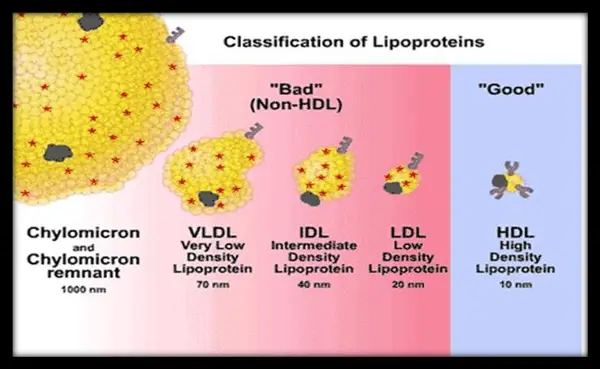
Health Implications
Explore the potential health implications associated with disruptions in thyroid function and elevated LDL cholesterol levels. Gain insights into the increased risk of cardiovascular diseases and other complications that arise due to imbalances in these parameters.
Thyroid function and low density lipoprotein (LDL) levels are interconnected and play a significant role in maintaining overall health. Let's explore the health implications associated with thyroid dysfunction and high levels of LDL cholesterol.
Thyroid Function
The thyroid gland, located in the neck, produces hormones that regulate metabolism, growth, and development. When the thyroid fails to function optimally, it can lead to various health problems.
Hyperthyroidism
Hyperthyroidism occurs when the thyroid gland produces excessive amounts of thyroid hormones. This can result in an increased metabolic rate, causing weight loss, rapid heartbeat, anxiety, and restlessness.
Hypothyroidism
On the other hand, hypothyroidism refers to an underactive thyroid, leading to reduced production of thyroid hormones. Symptoms may include fatigue, weight gain, depression, and dry skin.
Low Density Lipoprotein (LDL)
LDL cholesterol, often referred to as "bad cholesterol," is a type of cholesterol that transports fats from the liver to the cells. High levels of LDL cholesterol can contribute to the development of various health conditions.
Cardiovascular Diseases
Elevated LDL cholesterol levels significantly increase the risk of cardiovascular diseases, including heart attacks, strokes, and arterial blockages. It promotes the deposition of cholesterol in the arteries, leading to the formation of plaques that can restrict blood flow.
Connection between Thyroid Function and LDL Cholesterol
Studies have shown a clear association between thyroid function and LDL cholesterol levels. In cases of hyperthyroidism, LDL cholesterol levels may decrease due to the increased metabolic rate. Conversely, hypothyroidism often results in elevated LDL cholesterol levels, contributing to a higher risk of cardiovascular problems.
Maintaining optimal thyroid function and controlling LDL cholesterol levels are essential for overall health and well-being. Regular check-ups, lifestyle modifications, and appropriate medical interventions can help manage both thyroid dysfunction and high LDL cholesterol levels, mitigating the associated health implications.

Diagnosing Thyroid Disorders and Elevated LDL
Learn about the diagnostic procedures used to identify thyroid disorders and elevated LDL cholesterol. Discover common tests, such as thyroid function tests, lipid profile assessments, and imaging techniques that aid in the accurate diagnosis of these conditions.
Thyroid Disorders
Thyroid disorders refer to conditions that affect the thyroid gland, an important gland located in the neck. The thyroid gland produces hormones that regulate various bodily functions, including metabolism and energy levels. When the thyroid gland fails to produce enough hormones (hypothyroidism) or produces excessive hormones (hyperthyroidism), it can lead to various symptoms and health issues.
Elevated LDL and Thyroid Function
Low-density lipoprotein (LDL) cholesterol is commonly referred to as "bad" cholesterol, as high levels of LDL can increase the risk of cardiovascular diseases. Interestingly, research has shown a correlation between thyroid function and LDL levels. In cases of hypothyroidism, where the thyroid gland produces insufficient hormones, individuals may experience an elevation in LDL cholesterol. Conversely, in hyperthyroidism, where the thyroid gland produces excessive hormones, LDL cholesterol levels may be lower than normal.
Diagnosing Thyroid Disorders
Diagnosing thyroid disorders involves a comprehensive evaluation by a healthcare professional. This typically includes a physical examination, reviewing the patient's medical history, and conducting blood tests to assess thyroid hormone levels. These blood tests may measure thyroid-stimulating hormone (TSH), free thyroxine (T4), and triiodothyronine (T3) levels to determine the function of the thyroid gland.
Diagnosing Elevated LDL in Thyroid Function
To diagnose elevated LDL cholesterol in relation to thyroid function, medical professionals may perform lipid profile tests. These tests measure the levels of LDL cholesterol, as well as other lipids like high-density lipoprotein (HDL) cholesterol and triglycerides. By assessing these levels, healthcare providers can evaluate the overall cholesterol balance and determine if thyroid dysfunction is influencing the elevated LDL levels.
In conclusion, diagnosing thyroid disorders and assessing their relationship with elevated LDL cholesterol is crucial for maintaining overall health. Regular medical check-ups and appropriate blood tests can help detect these conditions, enabling healthcare providers to develop suitable treatment plans and promote well-being.
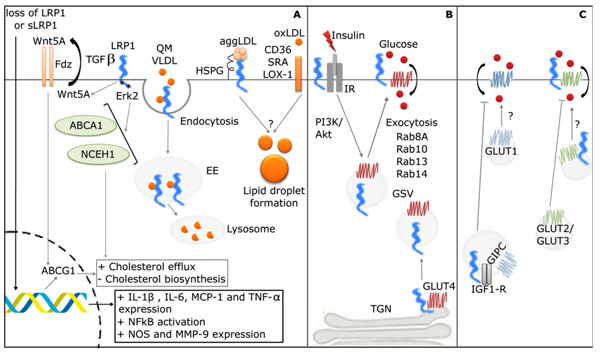
Treatment and Management
Discover various treatment options and management strategies for individuals with thyroid disorders and elevated LDL cholesterol. Learn about medication, lifestyle modifications, and other interventions that can effectively restore thyroid function and maintain healthy LDL levels.
Thyroid Function
The thyroid gland plays a crucial role in regulating the body's metabolism. If the thyroid function is disrupted, it can lead to various health issues. Here are some treatment and management strategies:
- Medication: Thyroid hormone replacement therapy is often prescribed for individuals with an underactive thyroid (hypothyroidism). Synthetic hormones are taken daily to restore hormone levels and improve symptoms.
- Lifestyle changes: Maintaining a healthy diet and regular exercise routine can support thyroid function. Consuming iodine-rich foods like seaweed, fish, and dairy products can also help in some cases.
- Regular check-ups: It is important to regularly monitor thyroid hormone levels through blood tests. This helps in adjusting the medication dosage if needed.
- Surgery: In certain cases, surgery may be required to remove part or all of the thyroid gland, especially if there are nodules or cancerous growths present.
Low Density Lipoprotein (LDL)
High levels of LDL cholesterol can increase the risk of heart disease and other cardiovascular problems. Effective treatment and management techniques for controlling LDL levels include:
- Medication: Statins are commonly prescribed to lower LDL cholesterol. They work by inhibiting an enzyme that produces cholesterol in the liver.
- Dietary changes: Following a heart-healthy diet, low in saturated and trans fats, can help in managing LDL levels. This includes consuming more fruits, vegetables, whole grains, and lean proteins.
- Regular exercise: Engaging in regular physical activity can increase HDL (good) cholesterol and lower LDL levels. Aim for at least 30 minutes of moderate-intensity exercise most days of the week.
- Weight management: Maintaining a healthy weight or losing excess weight can significantly impact LDL cholesterol levels. Even a small weight loss can have positive effects.
Always consult with a healthcare professional for personalized advice and treatment options related to thyroid function and LDL management.
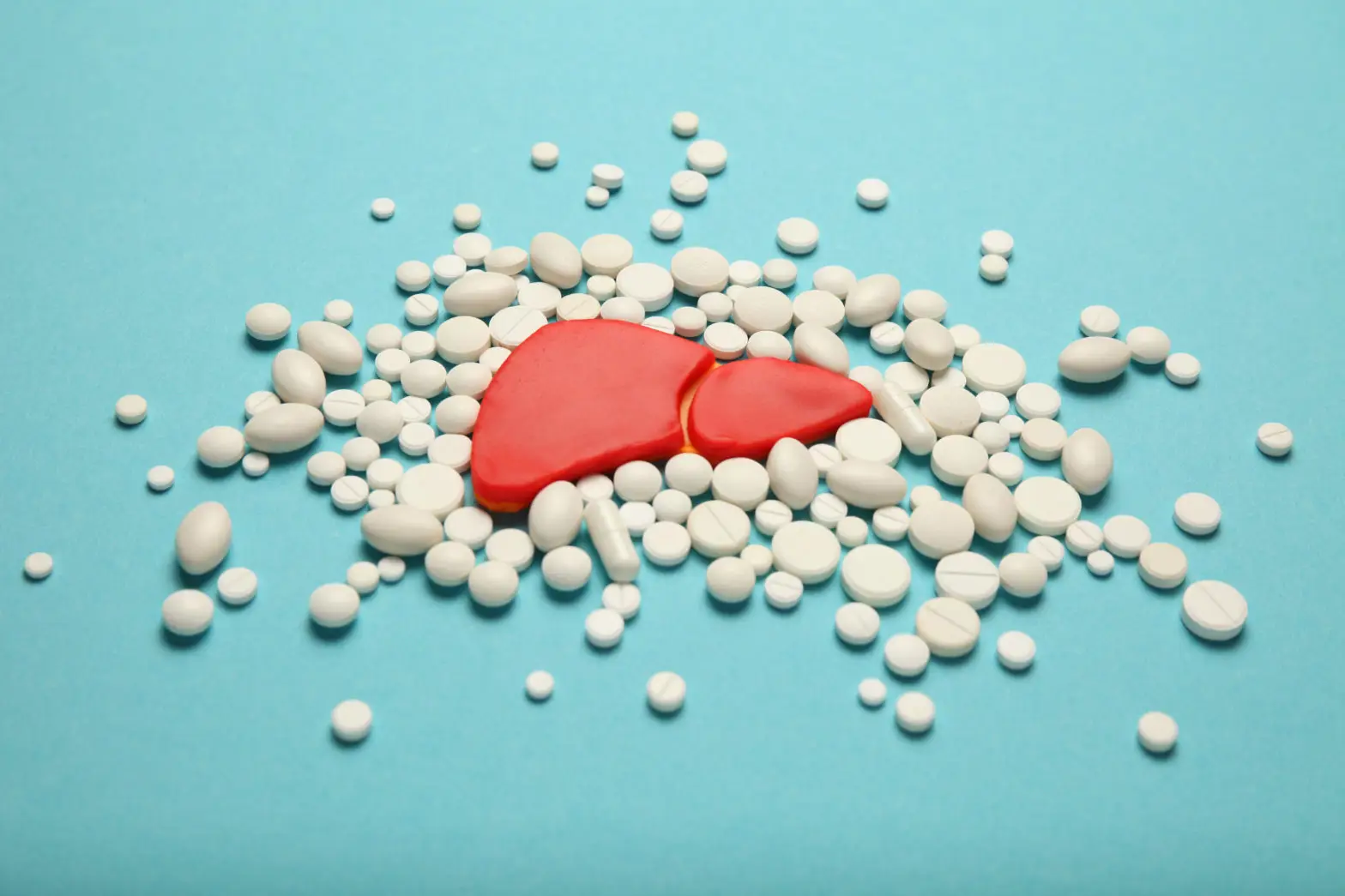
Preventive Measures
Find out about important preventive measures that can be taken to promote thyroid health and optimal LDL cholesterol levels. Get practical tips on maintaining a well-balanced diet, engaging in regular exercise, and managing stress for overall well-being.
Key Takeaways
- Thyroid hormones play a crucial role in LDL cholesterol metabolism.
- Imbalances in thyroid function can lead to dysregulated LDL clearance and synthesis.
- Elevated LDL cholesterol levels are associated with an increased risk of cardiovascular diseases.
- Diagnostic tests such as thyroid function tests and lipid profiles aid in identifying thyroid disorders and elevated LDL.
- Treatment may involve medication, lifestyle changes, and targeted interventions.
- Preventive measures like maintaining a healthy diet and regular exercise contribute to optimal thyroid and LDL levels.
Frequently Asked Questions (FAQ)
Q: How does the thyroid gland influence LDL cholesterol?
A: The thyroid gland produces hormones that regulate LDL receptor activity, cholesterol synthesis, and cholesterol absorption, thereby impacting LDL cholesterol levels in the body.
Q: What health problems can arise due to imbalances in thyroid function and elevated LDL?
A: Disruptions in thyroid function and elevated LDL cholesterol are associated with an increased risk of cardiovascular diseases, such as heart attacks and strokes, as well as other complications.
Q: What tests are commonly used to diagnose thyroid disorders and elevated LDL?
A: Common diagnostic tests include thyroid function tests, lipid profiles, and imaging techniques like ultrasounds or scans.
Q: How can individuals manage and treat thyroid disorders and elevated LDL?
A: Treatment options may include medication to restore thyroid function, lifestyle modifications like dietary changes and exercise, as well as specific interventions based on individual needs.
Q: Are there any preventive measures to maintain optimal thyroid function and healthy LDL levels?
A: Yes, adopting a balanced diet, engaging in regular exercise, managing stress, and avoiding tobacco or excessive alcohol consumption can contribute to maintaining optimal thyroid function and LDL cholesterol levels.
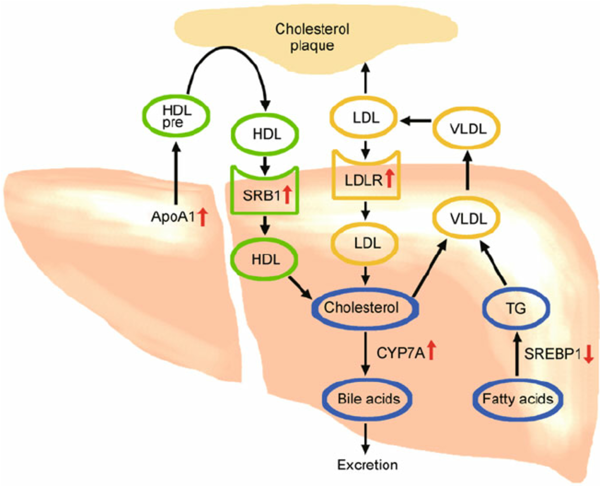


Recent Comments